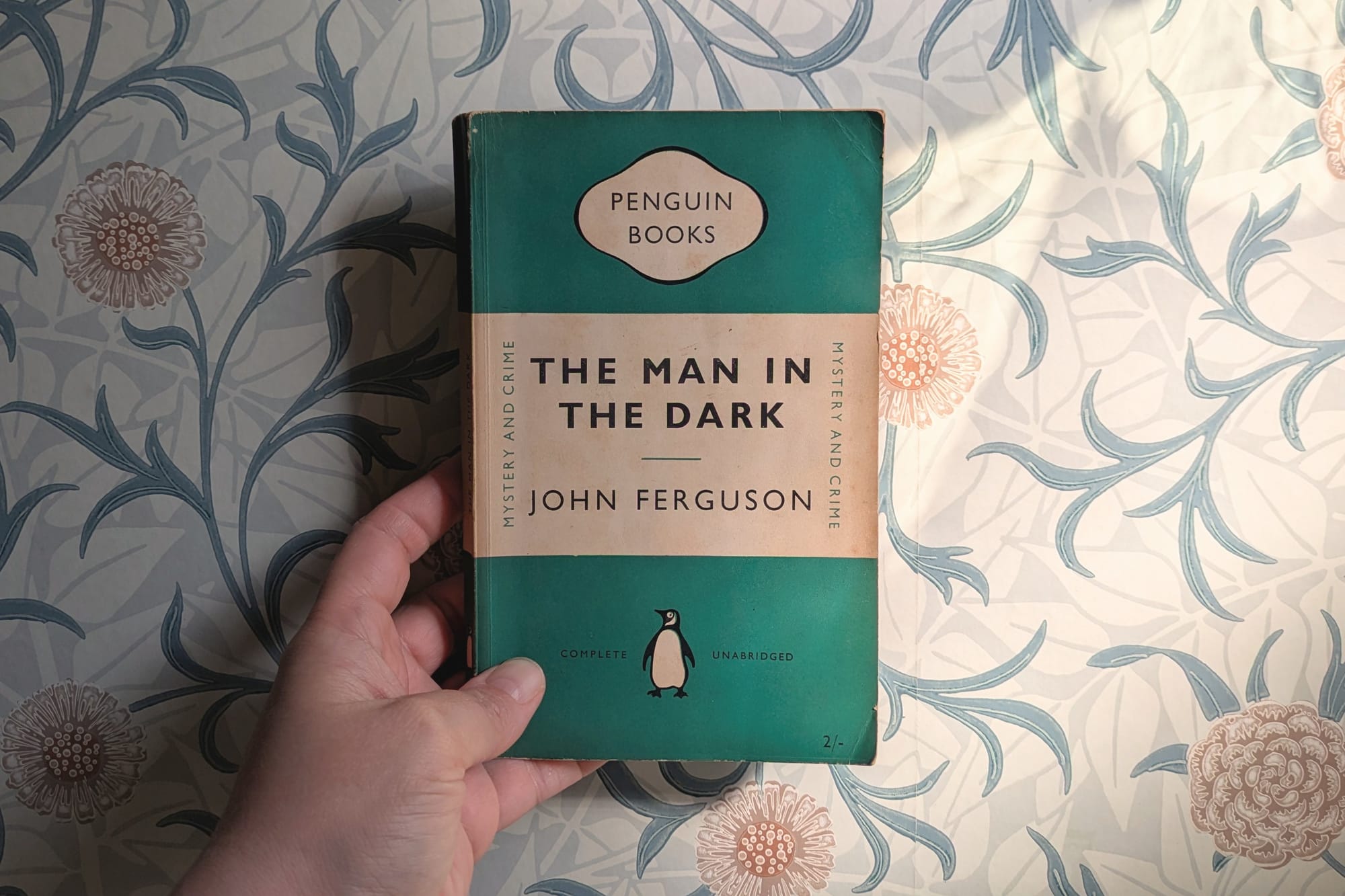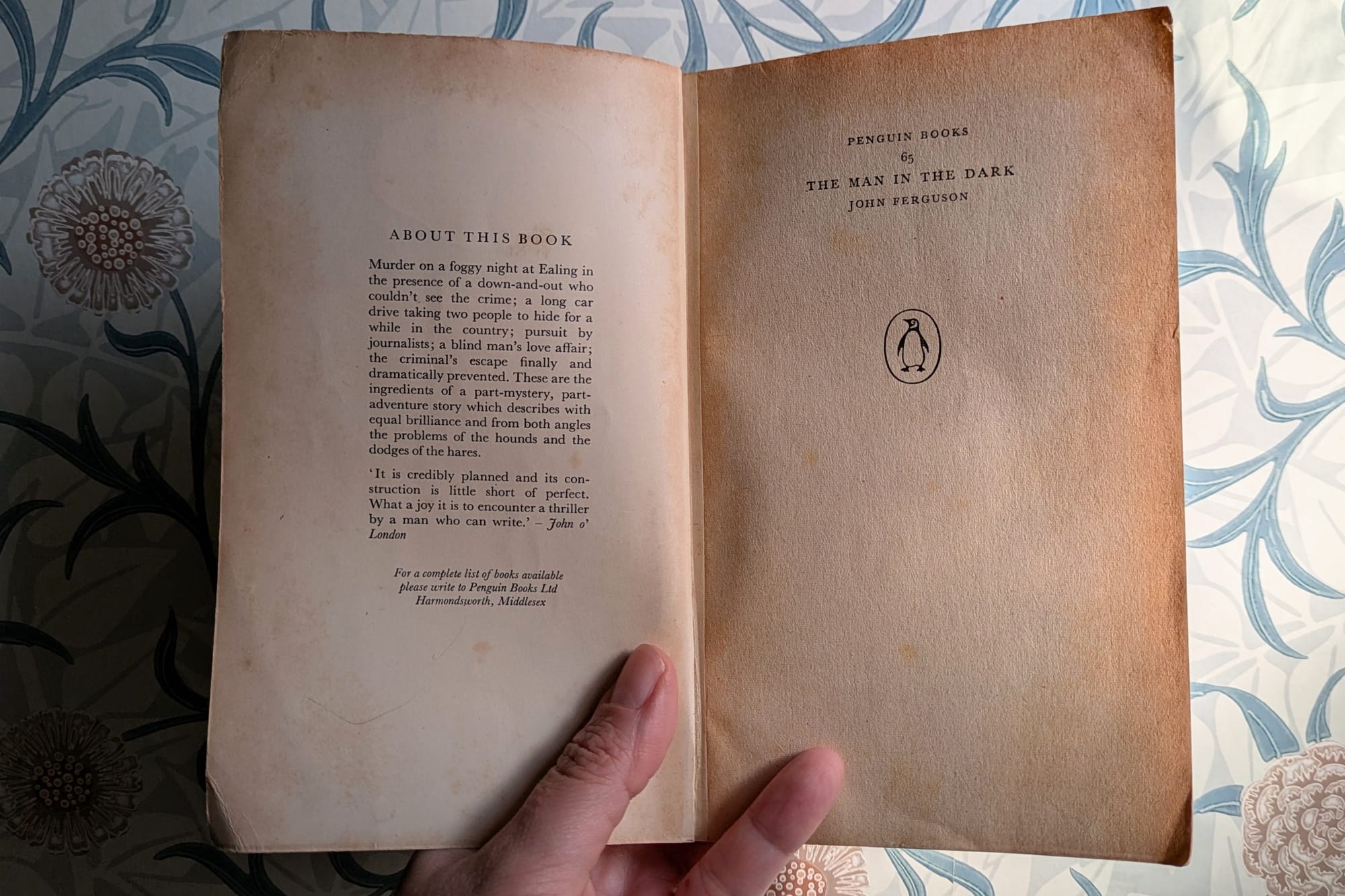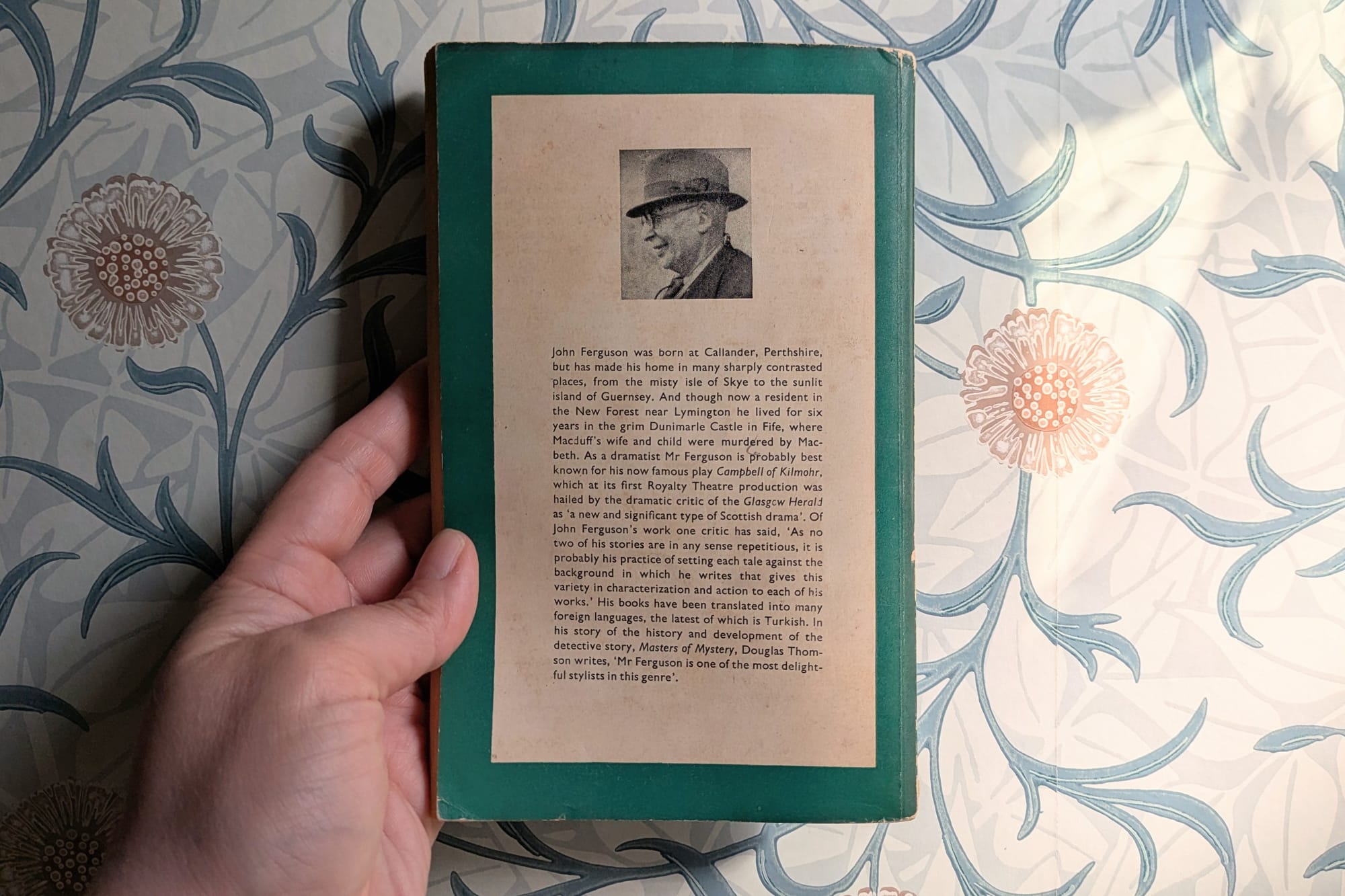The Man in the Dark
A closer look at John Ferguson's foggy 1928 "Ealing mystery".
Dear listeners,
It's Green Penguin Book Club time again! And we have reached the tenth crime, or green, title in the original Penguin series: The Man in the Dark by John Ferguson.

My copy is a 1952 reprint, by the way — I certainly don't have "full collection of first editions" money.
I had never heard of this book before I embarked on this reading project. That's one of the things that attracted me to doing this, actually. As well as getting to revisit some well-loved classics like The Unpleasantness at the Bellona Club by Dorothy L. Sayers and The Mysterious Affair at Styles by Agatha Christie, the requirement to read all of the Penguin crime titles in order brings me into contact with some books that were popular in their day but have long since rather faded from view. The Missing Moneylender by W. Stanley Sykes from earlier this year was definitely one of those and The Man in the Dark is another.
This book was first published in 1928 and joined the Penguin series in July 1936. It introduces a regular detective character for Ferguson, the Scottish private investigator Francis McNab, and also provides us with the first glimpse of a recurring Watson in the Fleet Street journalist Godfrey Chance. It's told in four "acts" that vary in format between third person narration, first person account and a witness statement. It straddles the divide between thriller and detective fiction.
As for what it's about, this summary from the inside cover of my edition does a rather good job of explaining:

That reads: "Murder on a foggy night at Ealing in the presence of a down-and-out who couldn't see the crime; a long car drive taking two people to hide for a while in the country; pursuit by journalists; a blind man's love affair; the criminal's escape finally and dramatically prevented. These are the ingredients of a part-mystery, part-adventure story which describes with equal brilliance and from both angles the problems of the hounds and the dodges of the hares."
I hope that has whetted your appetite for the episode, if not for the book itself!
So who was John Ferguson? He wasn't a member of the Detection Club, nor did his ten crime novels foster him a reputation that lasted much beyond his death in 1952. He is an intriguing figure, nonetheless — an episcopalian minister from Perthshire in Scotland who lived all over the place, including in Guernsey and in Kent, and who wrote popular plays about Scottish history as well as crime fiction.

You might be slightly more familiar with one of his 1930s novels, Death of Mr Dodsley, because it was republished a couple of years ago by the British Library Crime Classics series. I reviewed this bookshop-based mystery in the most recent edition of our reading recommendations newsletter (I liked the setting but thought the pacing was off). I wanted to read another Ferguson title and Dodsley was the only one that I found to be readily available.
By the end of our discussion, my guest Kate Jackson (of the excellent Cross Examining Crime blog) and I had decided that, although we might not go rushing out looking for more John Ferguson books, we still felt curious about his work.
In her review of one of his other novels, Night in Glengyle, Dorothy L. Sayers expressed herself more taken with his pure thrillers than his novels of detection. She wrote that "in the excitement of the chase your reviewer quite forgot to be cunning and was properly taken aback by the surprise-packet at the end". I think I might like to try one of those and see if I feel the same.
His Guernsey-set novel Death Comes to Perigord also intrigues me, partly because I am curious about the place and partly because this was the book that enabled Ferguson to make the advantageous move from his previous publisher to the Collins Crime Club. Surely this means the book has some interesting features? If you have read this or any of his others, do let me know how you found them. You can reply to this email or leave a comment on the website.
The next book to get the Green Penguin Book Club treatment will be Penguin 78, Trent's Last Case by E.C. Bentley. Look out for that episode in September!
Until next time,
Caroline
You can listen to every episode of Shedunnit at shedunnitshow.com or on all major podcast apps. Selected episodes are available on BBC Sounds. There are also transcripts of all episodes on the website. The podcast is now newsletter-only — we're not updating social media — so if you'd like to spread the word about the show consider forwarding this email to a mystery-loving friend with the addition of a personal recommendation. Links to Blackwell’s are affiliate links, meaning that the podcast receives a small commission when you purchase a book there (the price remains the same for you).
